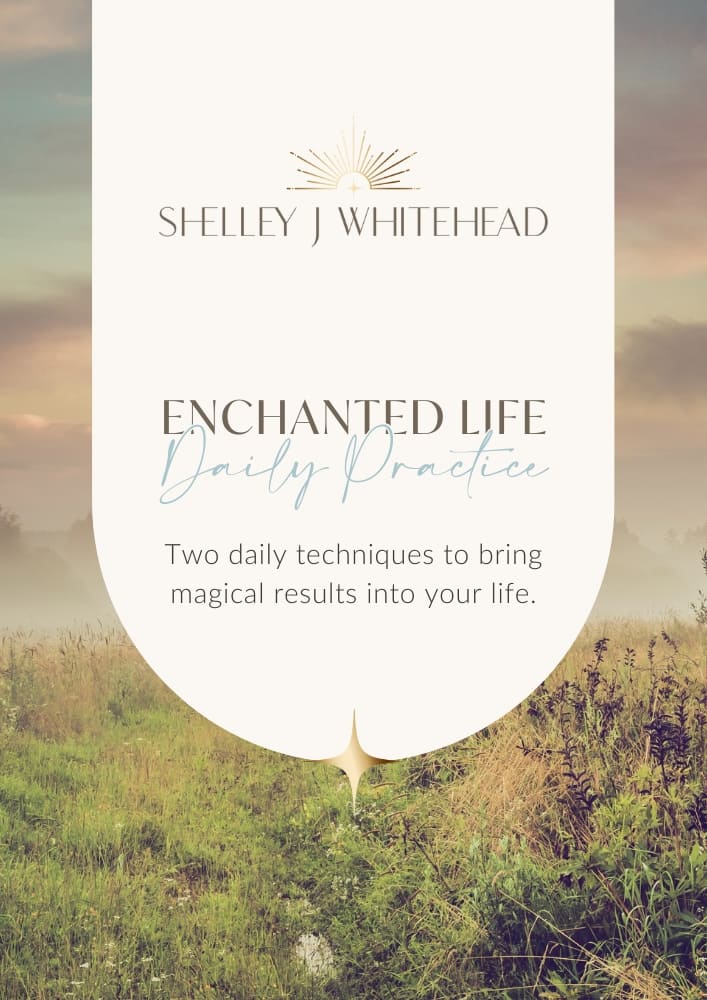Emotional literacy is one of the key skills for good relationships. It’s something that a lot of people take for granted, assuming that they have nothing to learn.
Being ‘empathic’ or ‘highly sensitive’, does not necessarily mean you have a high emotional intelligence – mastery of your emotional intelligence is very different to being acutely tuned in to the emotions of others or feeling in a heightened emotional state.
A high level of emotional literacy actually means that you are fully fluent in your own somatic signals, are able to understand and effectively channel the power of different emotions and that you have clarity on your boundaries and judgements.
I’m going to unpack this all for you in this video, giving you a clear overview of indicators that you have work to do to enhance your skills of emotional literacy to become more fluent in harnessing the power of your emotions.
For those of you that don’t already know me, my name is Shelley and I’m a specialist relationship coach, helping people all over the world build their skills of connecting (both with themselves and others) so they can go on to develop healthy, loving and thriving relationships.
Before I dive into the 5 indicators of emotional literacy, I’d just like to take a quick moment to frame the meaning and value of emotions.
So what is an emotion?
Quite simply, an emotion is a sensation in the body. Therapists and coaches often refer to this as a ‘somatic sensation’, meaning that it is something that occurs in the body rather than in the mind. Emotions are experienced in the body, thoughts are experienced in the mind.
What is the value of emotions? And how do they help us?
I think that the best way to understand the meaning and therefore the value of emotions is to see them as ‘messengers’, interpreting and connecting us to the world around us and framing our experiences. In the same way that we have sensations, such as hunger and thirst, connecting us to our interior landscape and what we need to do to keep it in balance and good health, our emotions connect us to our external landscape.
This brings me to the first point I want to talk about today, which indicates that you have work to do on your emotional literacy….
Labelling emotions as either ‘positive’ or ‘negative’
When you’re feeling thirsty, you don’t attach a judgement to that sensation. You don’t call your thirst a ‘negative’ sensation. It’s simply an indicator that you need to consume some liquid. It’s neither negative nor positive. It just is! You act on it to stay alive: you respond to the sensation by drinking. In other words, you channel your understanding of the sensation into taking an action that allows your body to stay in good health.
The same should be the case for all of your emotions. The experience of the sensation of an emotion is neither negative nor positive – it is a message that is helping you to understand and frame your experience. As children, we are often taught to reject certain emotions – anger being a really good example – and we can carry this through into adulthood as an anger-impaired individual.
Like all emotions, anger is a powerful and important tool. It tells us where boundaries are being crossed and where we need to do work to protect or assert a boundary. It has an important place in our lives in keeping us safe and in keeping us tuned in to what is important to us.
If you label an emotion as ‘negative’ you are at risk of stopping yourself from having the possibility of benefiting from the gifts that the emotion can bring to you, as you may reject it in yourself or deny it.
Venting your emotions
When you label an emotion as positive or negative and therefore deny it in yourself, what often happens is that the emotion itself becomes suppressed and trapped in your subconsciousness. The emotion won’t go away until we have channelled it in the way we need to channel it, which means that it might fester until it finds other ways to be expressed.
Let’s go back to the example of thirst. If you are thirsty you wouldn’t stop being thirsty just because you tell yourself you weren’t thirsty or that it was wrong to be thirsty.
It’s the same with anger. Your anger is telling you that there’s something you need to do about a boundary that is being threatened in some way. With high emotional literacy, you can understand what the sensation is telling you about what you need and you then can channel it into a healthy response, where you take responsibility by taking action. With low emotional literacy, you might just express the anger to the other person, venting without skillful communication and therefore dependent on the other person to ‘solve’ the problem for you.
Let me give you a concrete example of this: imagine that two toddlers are playing with a toy. One of them becomes frustrated with the other because he feels they are dominating the game and decides to hit the other. They both start crying very loudly. In this scenario, both are experiencing anger and both are venting their anger. The first toddler – the one who became frustrated – was unable to channel the gentle anger of his frustration into communicating with the other in a way that would help them get what they wanted. The second toddler – the one who has been hit – is unable to channel his anger to remove himself from the situation. Their loud, venting cries are a signal to the outside world that they need help solving their problem.
If you translate this to an adult scenario, imagine a couple who are deciding where to go on their next holiday together. One of them is dominating the conversation and dismissing all the suggestions of the other, who then lashes out. An argument begins, with lots of shouting and lots of doors slamming. As in the case of the two toddlers, these two adults are not using their anger to guide the conversation into a negotiation of needs and reciprocity, they are venting. In the same way as the toddlers, their loud shouts are an unskilled way of trying to get others to meet their needs for them.
Judging emotions in others
One of the best ways of knowing you have work to do on improving your emotional literacy is when you find yourself making strong judgments of others. This work is usually referred to as ‘shadow work’ and is one of my favourite tools for my coachees because it not only helps them get to know themselves better, but it also helps them immensely with their relationships with others. Knowing what you judge in others tells you about parts of yourself that you might have denied or rejected.
Not tolerating the emotions of others
If you suffer from poor boundaries or have codependent tendencies, you may find that you are deeply uncomfortable with the emotions of others, particularly those emotions that you label as ‘negative’.
I’m going to give you a very personal example here. After I lost my first husband to cancer, I had a stressful period of my life when I was adjusting to being the sole caregiver of my beautiful three children. During that time I couldn’t bear it when they were unhappy, lost, sad, confused or in any other kind of emotional pain. It took me a long time and a lot of deep emotional self-discovery work to learn to ‘allow’ them to experience their own emotions, particularly the ones that I had labelled ‘negative’ and not to try to leap in to soothe everything away. My job as a mother was to validate their emotions by allowing them their own experience – my job wasn’t to try to shield them or deny them their own emotions as I would have been robbing them of their powerful internal support mechanisms.
A good way to recognise that you are not tolerant of the emotions of others is when you find yourself offering unsolicited ‘solutions’ and ‘advice’ to others. The key word here is unsolicited. When someone asks you for some advice, you of course want to summon your own wisdom and experiences to perhaps share with them what you would do, were you in their shoes. However, if someone hasn’t asked for it, you may want to look at why you are, as a reflex, trying to ‘solve’ things for them. Is it because you aren’t able to tolerate their discomfort? Is it because you don’t trust that they have their own inner resources to find their way to a solution? Even as a coach, I have to check in with myself all the time, to ensure that the guidance and tools I am sharing is welcomed and is what is needed. It’s an essential part of my work.
When emotions get stuck and won’t leave
Our emotions are in-the-moment messengers. If we are able to channel their messages and respond to get our needs met in the moment, they will pass through. All emotions – happiness, sadness, fear, irritation, joy and so on… are all just fleeting indicators of what is going on for us, right now, in the moment.
If we aren’t able to channel the value of the emotions, they can stick around just beneath the surface of our consciousness, sometimes bubbling up disproportionately at the slightest trigger. Earlier we talked about the example of anger. It’s a common one that gets stuck for people because anger is such a misunderstood emotion and is ‘rejected’ by culture on so many levels.
And, if you ever find yourself experiencing depression, that in itself is an indicator that it would be helpful to develop your emotional literacy. The reason for that is that depression is the emotion that stops us in our tracks and forces us to look inwards. It’s almost the body’s way of shutting down, so we can pour all of our energy into looking at things that we might not have wanted to look at before – all those emotions that we may have cast aside as ‘negative’ that need to be integrated and accepted.
All of these concepts are deep concepts, relating to a skillset that takes time to learn. But it’s really worth learning them. I’ve only scratched the surface here and some of these areas take much more depth of explanation in order to really get to grips with. Whilst you were watching the video, if you found that there were some areas that just didn’t make sense yet that you would like to learn more about, I’d recommend that you subscribe to my channel. I’m really enjoying creating videos for you and am getting some lovely feedback from people, so I’m going to continue to focus on subjects that I think make a profound difference in people’s lives.
With knowledge comes mastery and with mastery you have a whole world of choices and possibilities opening up to you, both in terms of your relationship with yourself and living your beautiful enchanted life or in terms of your relationship with others, in having healthy connections that enhance your life and your world.
I hope that you have enjoyed these ideas!



